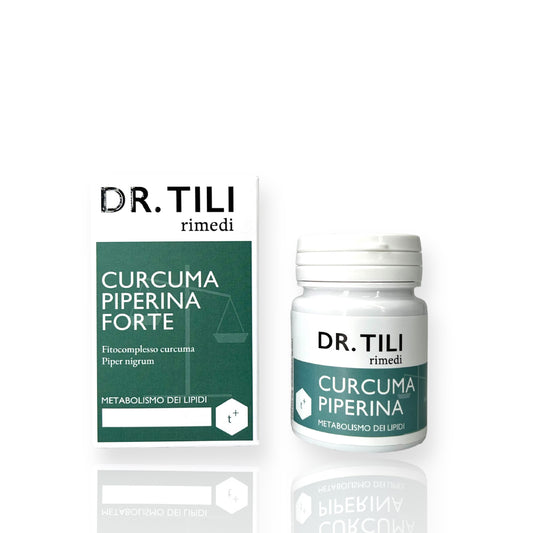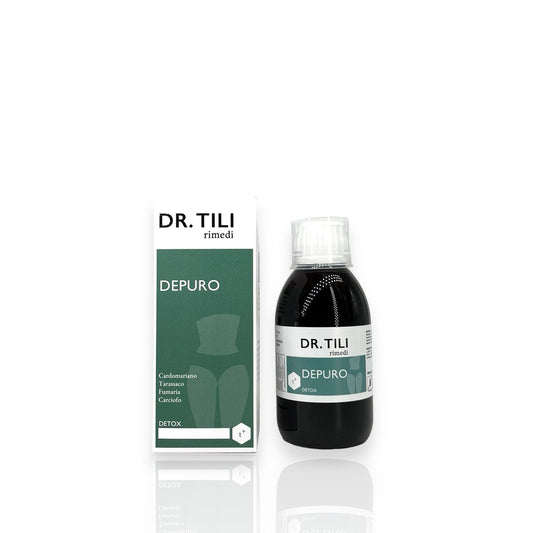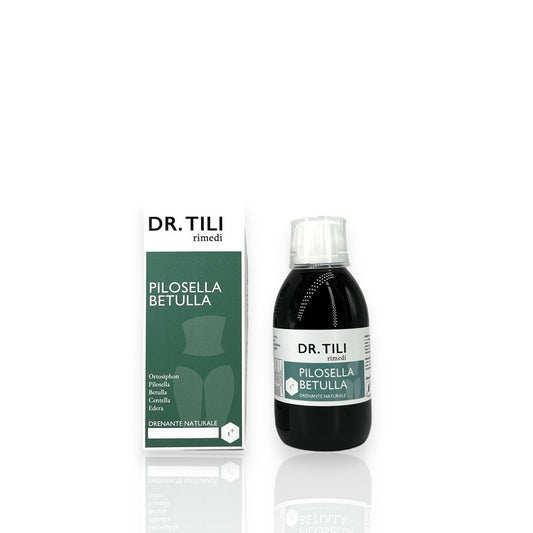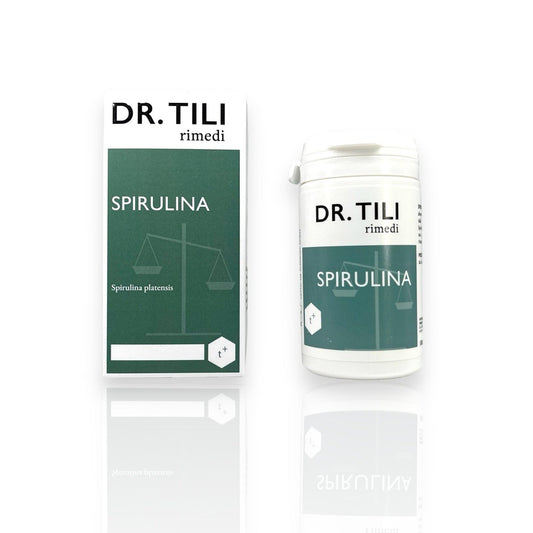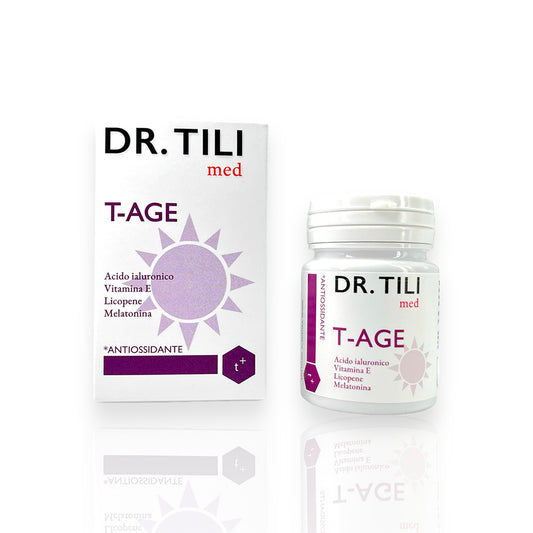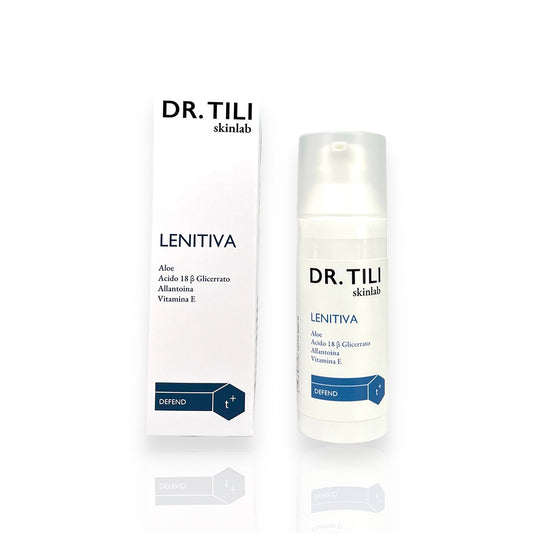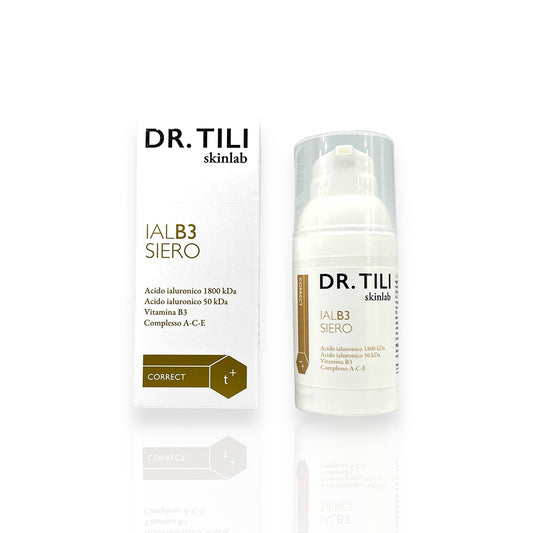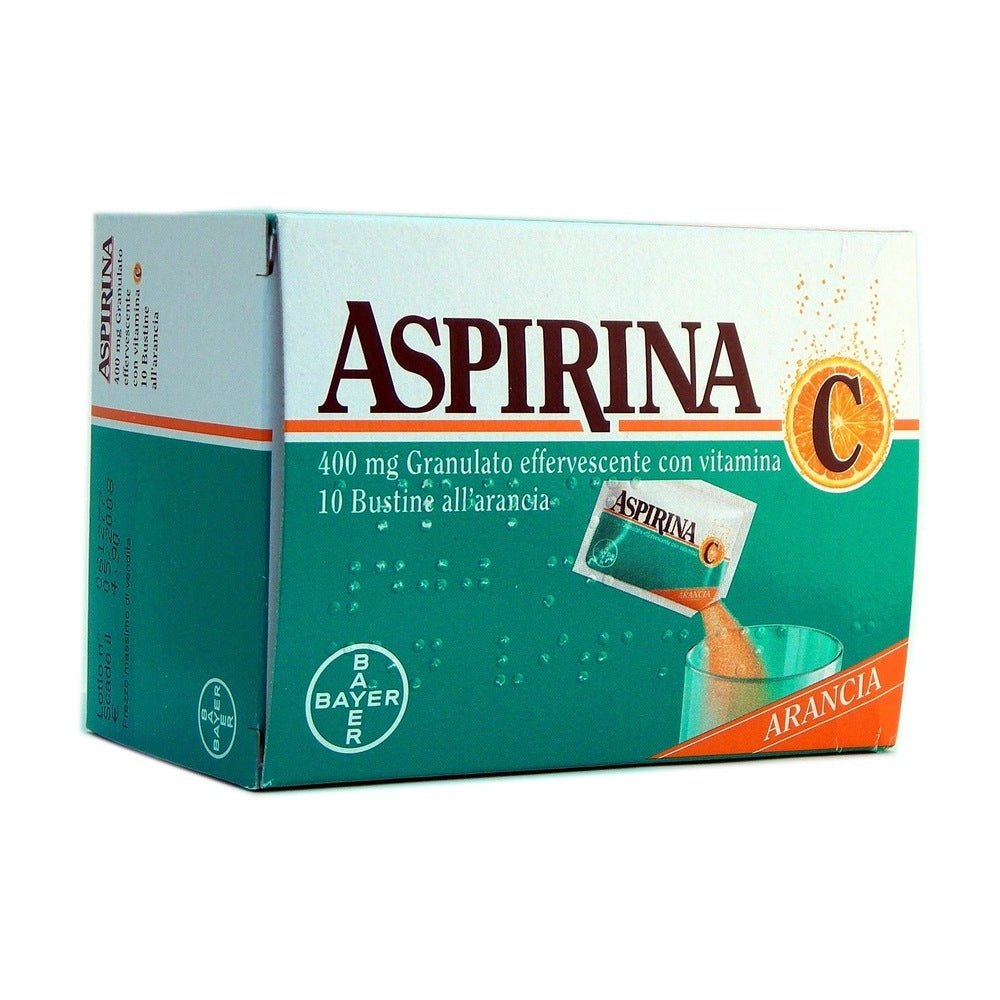BAYER SpA
Aspirin 400mg effervescent granules with vitamin C 10 sachets 10g
Aspirin 400mg effervescent granules with vitamin C 10 sachets 10g

Couldn't load pickup availability
PRODUCT NET WEIGHT
PRODUCT NET WEIGHT
EAN
EAN
004763153
MINSAN
MINSAN
004763153
Aspirin 400mg effervescent granules with vitamin C 10 sachets 10g is a pharmaceutical product formulated to offer effective symptomatic therapy against feverish states, flu and cold syndromes. Each sachet contains acetylsalicylic acid (400 mg) and ascorbic acid (vitamin C, 240 mg), a combination that helps reduce pain and inflammation, while supporting the immune system. This effervescent granules is designed for rapid absorption, ensuring timely relief from headaches, dental pain, neuralgia, menstrual pain, rheumatic and muscular pain. The presence of vitamin C not only enhances the analgesic effect, but also contributes to the protection of cells from oxidative stress. The 10g sachet format is practical and easy to use, ideal for those looking for a fast and effective treatment option.
ACTIVE INGREDIENTS
Active ingredients contained in Aspirin 400mg effervescent granules with vitamin C 10 sachets 10g - What is the active ingredient of Aspirin 400mg effervescent granules with vitamin C 10 sachets 10g?
One sachet contains: active ingredients : acetylsalicylic acid: 400 mg; ascorbic acid (vitamin C): 240 mg. Excipients: sucrose, sicovit (E110). For the full list of excipients, see section 6.1.
EXCIPIENTS
Composition of Aspirin 400mg effervescent granules with vitamin C 10 sachets 10g - What does Aspirin 400mg effervescent granules with vitamin C 10 sachets 10g contain?
Citric acid; monobasic sodium citrate; sodium bicarbonate; sodium carbonate; orange concentrate; orange flavouring powder; saccharin E 110; sucrose.
DIRECTIONS
Therapeutic indications Aspirin 400mg effervescent granules with vitamin C 10 sachets 10g - Why is Aspirin 400mg effervescent granules with vitamin C 10 sachets 10g used? What is it used for?
Symptomatic treatment of feverish states and flu and cold syndromes. Symptomatic treatment of headache and toothache, neuralgia, menstrual pain, rheumatic and muscular pain.
CONTRAINDICATIONS SIDE EFFECTS
Contraindications Aspirin 400mg effervescent granules with vitamin C 10 sachets 10g - When should Aspirin 400mg effervescent granules with vitamin C 10 sachets 10g not be used?
ASPIRIN effervescent granules with vitamin C is contraindicated in case of: - hypersensitivity to the active substances (acetylsalicylic acid and ascorbic acid), to other analgesics (painkillers) / antipyretics (feverkillers) / non-steroidal anti-inflammatory drugs (NSAIDs) or to any of the excipients; - gastroduodenal ulcer; - haemorrhagic diathesis; - severe renal, cardiac or hepatic insufficiency - glucose-6-phosphate dehydrogenase (G6PD/favism) deficiency; - concomitant treatment with methotrexate (at doses of 15 mg/week or more) or with warfarin (see section 4.5); - history of asthma induced by the administration of salicylates or substances with similar activity, in particular non-steroidal anti-inflammatory drugs; - last trimester of pregnancy and breastfeeding (see section 4.6); - children and adolescents under 16 years of age; - Nephrolithiasis or previous history of nephrolithiasis; - Hyperoxaluria; - Hemochromatosis.
DOSAGE
Quantity and method of taking Aspirin 400mg effervescent granules with vitamin C 10 sachets 10g - How do you take Aspirin 400mg effervescent granules with vitamin C 10 sachets 10g?
Adults Pour the contents of the sachet into half a glass of water, or more. Mix with a teaspoon. Wait until the slight effervescence stops before drinking. 1 sachet, repeating, if necessary, the dose at intervals of 4-8 hours up to 3-4 times a day. The product is intended for use by adult patients only. Always use the minimum effective dosage and increase it only if it is not sufficient to relieve the symptoms (pain and fever). Those most at risk of serious side effects, who can use the medicine only if prescribed by a doctor, must carefully follow the instructions (see section 4.4). Do not take the product for more than 3-5 days without consulting a doctor. Consult a doctor if symptoms persist. Use the medicine for the shortest possible period. Take the medicine preferably after main meals or, in any case, on a full stomach. Special populations Paediatric population Aspirin effervescent granules with vitamin C is not indicated for use in the paediatric population (see section 4.4). Elderly In elderly patients use the lowest effective dosage Patients with impaired hepatic function Acetylsalicylic acid should be used with caution in patients with impaired hepatic function (see section 4.4). Patients with impaired renal function Acetylsalicylic acid should be used with caution in patients with impaired renal function (see section 4.4).
CONSERVATION
Storage Aspirin 400mg effervescent granules with vitamin C 10 sachets 10g - How do you store Aspirin 400mg effervescent granules with vitamin C 10 sachets 10g?
Store below 25°C.
WARNINGS
Warnings Aspirin 400mg effervescent granules with vitamin C 10 sachets 10g - About Aspirin 400mg effervescent granules with vitamin C 10 sachets 10g it is important to know that:
Hypersensitivity reactions Acetylsalicylic acid and other NSAIDs may cause hypersensitivity reactions (including asthma attacks, rhinitis, angioedema or urticaria). The risk is higher in subjects who have already shown a hypersensitivity reaction after using this type of drug in the past (see section 4.3) and in subjects who have allergic reactions to other substances (e.g. skin reactions, itching, urticaria). In subjects with asthma and/or rhinitis (with or without nasal polyposis) and/or urticaria, reactions may be more frequent and severe. In rare cases, reactions may be very serious and potentially fatal. In the following cases, administration of the drug requires a doctor's prescription after careful evaluation of the risk/benefit ratio: - Subjects at increased risk of hypersensitivity reactions (see above) - Subjects at increased risk of gastrointestinal lesions Acetylsalicylic acid and other NSAIDs may cause serious gastrointestinal side effects (bleeding, ulcer, perforation). For this reason, these drugs should not be used by subjects suffering from gastrointestinal ulcers or gastrointestinal bleeding. It is also prudent that those who have suffered from gastrointestinal ulcers or gastrointestinal bleeding in the past should avoid their use. The risk of gastrointestinal lesions is a dose-related effect, as gastrolesivity is greater in subjects who use higher doses of acetylsalicylic acid. Subjects who are used to drinking large quantities of alcohol are also more exposed to the risk of gastrointestinal lesions (bleeding in particular) (see section 4.5). - Subjects with coagulation defects or undergoing treatment with anticoagulants In subjects suffering from coagulation defects or undergoing treatment with anticoagulants, acetylsalicylic acid and other NSAIDs can cause a serious reduction in haemostatic capacity, exposing them to the risk of haemorrhage. - Subjects with impaired renal or cardiac or hepatic function Acetylsalicylic acid and other NSAIDs may cause a critical reduction in renal function and fluid retention; the risk is greater in subjects treated with diuretics. This can be particularly dangerous for the elderly and for subjects with impaired renal or cardiac or hepatic function. - Subjects suffering from asthma Acetylsalicylic acid and other NSAIDs may cause an aggravation of asthma. - Geriatric age (especially over 75 years) The risk of serious adverse effects is greater in subjects of geriatric age. Subjects over 70 years of age, especially in the presence of concomitant therapies, should use Aspirin 400 mg effervescent granules only after consulting a doctor. Aspirin 400 mg effervescent granules must not be used in the paediatric population (see section 4.3). Products containing acetylsalicylic acid should not be used in children and adolescents under 16 years of age with viral infections, regardless of whether or not fever is present. In certain viral infections, especially influenza A, influenza B and chickenpox, there is a risk of Reye's Syndrome, a very rare but life-threatening disease that requires immediate medical attention. The risk may be increased if acetylsalicylic acid is taken at the same time, although a causal relationship has not been demonstrated. Persistent vomiting in patients with these diseases may be a sign of Reye's Syndrome. - Subjects with hyperuricemia/gout Acetylsalicylic acid may interfere with the elimination of uric acid: high doses have a uricosuric effect while (very) low doses may reduce its excretion. It should also be considered that acetylsalicylic acid and other NSAIDs may mask the symptoms of gout, delaying its diagnosis. An antagonistic effect with uricosuric drugs is also possible (see section 4.5). - Subjects with a predisposition to calcium-oxal nephrolithiasis (kidney stones) or with recurrent nephrolithiasis Vitamin C (ascorbic acid) should be used with caution in subjects with a predisposition to calcium-oxal nephrolithiasis (kidney stones) or with recurrent nephrolithiasis. - Combinations of drugs that are not recommended or that require special precautions or dosage adjustment . The use of acetylsalicylic acid in combination with certain drugs may increase the risk of serious side effects (see section 4.5). Do not use acetylsalicylic acid together with another NSAID or, in any case, do not use more than one NSAID at a time. Sodium This medicine contains 469 mg sodium per sachet equivalent to 23% of the WHO recommended maximum daily intake of 2 g sodium for an adult. Sucrose This medicinal product contains 5.6 g of sucrose per sachet. To be taken into consideration by people with diabetes mellitus. Patients with rare hereditary problems of fructose intolerance, glucose-galactose malabsorption or sucrase-isomaltase insufficiency should not take this medicine. Yellow-orange colouring (E 110) May cause allergic reactions. If you are undergoing surgery (even minor surgery, for example tooth extraction) and have taken acetylsalicylic acid or another NSAID in the previous few days, you must inform your surgeon because of the possible effects on coagulation. Since acetylsalicylic acid may cause gastrointestinal bleeding, this must be taken into account if a test for occult blood is necessary. Before administering any medicine, all necessary precautions must be taken to prevent adverse reactions; particularly important is the exclusion of previous hypersensitivity reactions to this or other medicines and the exclusion of other contraindications or conditions that may expose you to the risk of potentially serious side effects listed above. If in doubt, consult your doctor or pharmacist. The product must be taken on a full stomach.
INTERACTIONS
Interactions Aspirin 400mg effervescent granules with vitamin C 10 sachets 10g - Which medicines or foods can modify the effect of Aspirin 400mg effervescent granules with vitamin C 10 sachets 10g?
Contraindicated combinations (avoid concomitant use - see section 4.3) - Methotrexate (doses greater than or equal to 15 mg/week): increased plasma levels and toxicity of methotrexate; the risk of toxic effects is greater if renal function is impaired. - Warfarin: severely increased risk of haemorrhage due to increased anticoagulant effect. Combinations not recommended (the concomitant use of the two drugs requires a doctor's prescription after careful evaluation of the risk/benefit ratio - see section 4.4) Antiplatelet agents: increased risk of haemorrhage due to the sum of the antiaggregant effect. Thrombolytics or oral or parenteral anticoagulants: increased risk of haemorrhage due to increased pharmacological effect. NSAIDs (excluding topical use): increased risk of serious adverse effects. Methotrexate (doses less than 15 mg/week): the increased risk of toxic effects (see above) must also be considered for treatment with low-dose Methotrexate. Selective serotonin reuptake inhibitors (SSRIs): increased risk of upper gastrointestinal bleeding due to a possible synergistic effect. Combinations requiring special precautions or dosage adjustment (the concomitant use of the two drugs requires a doctor's prescription after careful evaluation of the risk/benefit ratio - see section 4.4) ACE inhibitors: reduction of the hypotensive effect; increased risk of renal function impairment. Valproic acid: increased effect of valproic acid (risk of toxicity). Antacids: antacids taken simultaneously with other drugs may reduce their absorption; the excretion of acetylsalicylic acid increases in alkaline urine. Antidiabetics (e.g. insulin and oral hypoglycaemics) : increased hypoglycaemic effect; the use of acetylsalicylic acid in subjects undergoing treatment with antidiabetics must take into account the risk of inducing hypoglycaemia. Digoxin: increased plasma concentration of digoxin due to decreased renal elimination. Diuretics : increased risk of nephrotoxicity of acetylsalicylic acid and other NSAIDs; reduced effect of diuretics. Acetazolamide : reduced elimination of acetazolamide (risk of toxicity) Phenytoin: increased effect of phenytoin. Corticosteroids (excluding those for topical use and those used for the treatment of adrenal insufficiency): a) increased risk of gastrointestinal lesions; b) due to the increased elimination of salicylates induced by corticosteroids, there is a reduction in plasma salicylate levels. On the other hand, after interruption of corticosteroid treatment, salicylate overdose may occur. Metoclopramide: increased effect of acetylsalicylic acid due to increased absorption rate. Uricosurics (e.g. probenecid, benzbromarone): decreased uricosuric effect. Zafirlukast: increased plasma concentration of zafirlukast. Deferoxamine: concomitant use of ascorbic acid may cause increased tissue toxicity of iron, especially at cardiac level, and cause cardiac failure. Aspirin 400mg effervescent granules contains buffer systems that could reduce the effects of the thyroid hormone Levothyroxine. Alcohol (see section 4.4) The sum of the effects of alcohol and acetylsalicylic acid causes increased damage to the gastrointestinal mucosa and prolongation of bleeding time. However, it is advisable not to administer other oral drugs within 1 or 2 hours of using the product. Interference with clinical laboratory tests Vitamin C Since vitamin C is a reducing agent (i.e. an electron donor), it can cause chemical interference in laboratory tests involving oxidation-reduction reactions, such as glucose, creatinine, carbamazepine, uric acid in urine, serum and occult blood in stool. Vitamin C can interfere with tests that measure glucose in urine and blood leading to a false reading of the results even if it has no effect on blood glucose levels.
SIDE EFFECTS
Like all medicines, Aspirin 400mg effervescent granules with vitamin C 10 sachets 10g can cause side effects - What are the side effects of Aspirin 400mg effervescent granules with vitamin C 10 sachets 10g?
The most frequently observed side effects are those affecting the gastrointestinal system and may occur in approximately 4% of subjects taking acetylsalicylic acid as an analgesic-antipyretic. This percentage increases significantly in subjects at risk of gastrointestinal disorders. These disorders can be partially alleviated by taking the medicine on a full stomach. Most of the side effects are dependent on both the dose and the duration of treatment. The side effects observed with acetylsalicylic acid are generally common to other NSAIDs. Blood and lymphatic system disorders : prolonged bleeding time, haemorrhage from gastrointestinal bleeding, reduction in platelets (thrombocytopenia) in extremely rare cases. Following haemorrhage, haemorrhagic/iron deficiency anaemia may occur (due, for example, to occult microhaemorrhages) with related alterations in laboratory parameters and related clinical signs and symptoms such as asthenia, pallor and hypoperfusion. Nervous system disorders : headache, dizziness. Rarely: Reye's syndrome (*). Rarely to very rarely: cerebral haemorrhage, especially in patients with uncontrolled hypertension and/or on anticoagulant therapy, which in isolated cases may be life-threatening. Ear and labyrinth disorders : tinnitus (buzzing/rustling/ringing/whistling in the ears). Respiratory, thoracic and mediastinal disorders : respiratory disease exacerbated by acetylsalicylic acid, asthma syndrome, rhinitis (profuse rhinorrhoea), nasal congestion (associated with hypersensitivity reactions). Epistaxis. Cardiac disorders : cardiorespiratory distress (associated with hypersensitivity reactions). Eye disorders : conjunctivitis (associated with hypersensitivity reactions). Gastrointestinal disorders : gastrointestinal bleeding (occult), gastric disturbances, heartburn, gastrointestinal pain, gingival bleeding. Vomiting, diarrhoea, nausea, abdominal pain, cramps (associated with hypersensitivity reactions). Rarely: gastrointestinal inflammation, gastrointestinal erosion, gastrointestinal ulceration, haematemesis (vomiting blood or “coffee-ground” material), melaena (passage of black, tarry stools), oesophagitis. Very rarely: haemorrhagic gastrointestinal ulcer and/or gastrointestinal perforation with related clinical signs and symptoms and alterations in laboratory parameters. Frequency not known (especially in long-term treatment): - Disease of the intestinal diaphragms. Hepatobiliary disorders : rarely: hepatotoxicity (usually mild and asymptomatic hepatocellular injury) manifested by an increase in transaminases. Skin and subcutaneous tissue disorders : rash, oedema, urticaria, pruritus, erythema, angioedema (associated with hypersensitivity reactions). Renal and urinary disorders : alteration of renal function (in the presence of conditions of altered renal haemodynamics) and acute renal injury, urogenital haemorrhages. Systemic disorders and conditions related to the site of administration : procedural haemorrhages, haematomas. Immune system disorders : rarely: anaphylactic shock with related alterations of laboratory parameters and clinical manifestations. (*) Reye's syndrome (RS) RS initially manifests itself with vomiting (persistent or recurrent) and with other signs of encephalic suffering of varying degrees: from listlessness, drowsiness or personality changes (irritability or aggressiveness) to disorientation, confusion or delirium up to convulsions or loss of consciousness. The variability of the clinical picture must be taken into account: vomiting may also be absent or replaced by diarrhoea. If these symptoms occur in the days immediately following an episode of influenza (or flu-like or chickenpox or another viral infection) during which acetylsalicylic acid or other medicinal products containing salicylates were administered, the doctor's attention should immediately be drawn to the possibility of an RS. Reporting of suspected adverse reactions Reporting suspected adverse reactions that occur after authorisation of the medicinal product is important, as it allows continued monitoring of the benefit/risk balance of the medicinal product. Healthcare professionals are asked to report any suspected adverse reactions via the national reporting system. Website: https://www.aifa.gov.it/content/segnalazioni-reazioni-avverse.
OVERDOSE
Overdose Aspirin 400mg effervescent granules with vitamin C 10 sachets 10g - What are the risks of Aspirin 400mg effervescent granules with vitamin C 10 sachets 10g in case of overdose?
Acetylsalicylic acid Salicylate toxicity (a dose greater than 100 mg/kg/day for 2 consecutive days may induce toxicity) may result from chronic ingestion of excessive doses, or from acute, potentially life-threatening overdose, including accidental ingestion in children. Chronic salicylate intoxication Chronic salicylate poisoning can be insidious since the signs and symptoms are nonspecific. Mild chronic salicylate intoxication, or salicylism, usually occurs only after repeated use of large doses. Symptoms include dizziness, vertigo, tinnitus, deafness, sweating, nausea and vomiting, headache, and confusion. These symptoms can be controlled by reducing the dosage. Tinnitus may occur at plasma concentrations between 150 and 300 micrograms/ml, while at concentrations above 300 micrograms/ml more serious adverse events occur. Acute salicylate poisoning The main feature of acute poisoning is a severe disturbance of acid-base balance, which may vary with age and severity of poisoning; the most common presentation in children is metabolic acidosis. The severity of poisoning cannot be estimated from plasma concentrations alone; absorption of acetylsalicylic acid may be delayed due to impaired gastric emptying, formation of gastric concretions, or ingestion of enteric-coated preparations. Management of acetylsalicylic acid poisoning is determined by the extent, stage, and clinical symptoms of the poisoning and should be implemented according to conventional poisoning management techniques. The main measures to be taken are to accelerate the excretion of the drug and to restore electrolytic and acid-base metabolism. Due to the complex physiopathological effects associated with salicylate poisoning, the signs and symptoms/results of biochemical and instrumental investigations may include:
| Signs and symptoms | Results of biochemical and instrumental investigations | Therapeutic measures |
| MILD TO MODERATE POISONING | Gastric lavage, repeated administration of activated charcoal, forced alkaline diuresis | |
| Tachypnea, hyperventilation, respiratory alkalosis | Alkalemia, alkaluria | Fluid and electrolyte management |
| Sweating | ||
| Nausea, vomiting, headache, dizziness | ||
| MODERATE TO SEVERE POISONING | Gastric lavage, repeated administration of activated charcoal, forced alkaline diuresis, haemodialysis in severe cases | |
| Respiratory alkalosis with compensatory metabolic acidosis, | Acidemia, aciduria | Fluid and electrolyte management |
| Hyperpyrexia | Fluid and electrolyte management | |
| Respiratory: Variable from hyperventilation and non-cardiogenic pulmonary edema to respiratory arrest and asphyxia | ||
| Cardiovascular: ranging from arrhythmias and hypotension to cardiac arrest | E.g. blood pressure changes, ECG changes | |
| Loss of fluids and electrolytes: dehydration, from oliguria to renal failure | E.g. hypokalemia, hyperna–tremia, hyponatremia, impaired renal function | Fluid and electrolyte management |
| Alterations in carbohydrate metabolism, keto–si | Hyperglycemia, hypoglycemia (especially in children) Increased ketone levels | |
| Tinnitus, deafness | ||
| Gastrointestinal: gastrointestinal bleeding, gastric ulcer | ||
| Hematological: coagulopathy, iron deficiency anemia | E.g. prolongation of PT, hypoprothrombinemia | |
| Neurological: Toxic encephalopathy and CNS depression with manifestations ranging from lethargy and confusion to coma and convulsions. Cerebral edema. | ||
| Hepatic: liver damage | Increased liver enzyme levels |
At high doses, the following may also occur: Taste disturbances. Skin rashes (acneiform, erythematous, scarlatiniform, eczematoid, desquamative, bullous, purpuric), itching. Others: Conjunctivitis, anorexia, reduced visual acuity, drowsiness. Rarely: aplastic anemia, agranulocytosis, disseminated intravascular coagulation, pancytopenia, leukopenia, thrombocytopenia, eosinopenia, purpura, eosinophilia associated with drug-induced hepatotoxicity, nephrotoxicity (allergic tubulointerstitial nephritis), haematuria (presence of blood in the urine). Acute allergic reactions following intake of acetylsalicylic acid can be treated, if necessary, with the administration of adrenaline, corticosteroids and an antihistamine. In case of overdose, contact a poison control center or the nearest hospital immediately. Acetylsalicylic acid is dialyzable. Ascorbic Acid Single cases of acute and chronic overdose of ascorbic acid have been reported in the literature. Overdose of ascorbic acid may cause oxidative haemolysis in patients with glucose-6-phosphate dehydrogenase deficiency, disseminated intravascular coagulation and significantly elevated serum and urinary oxalate levels. Increased oxalate levels have been shown to result in the formation of calcium oxalate deposits in dialysis patients. High doses of vitamin C may cause calcium oxalate deposits, calcium oxalate crystalluria in patients predisposed to crystal formation, tubulointerstitial nephropathy and acute renal failure secondary to calcium oxalate crystals.
PREGNANCY AND BREASTFEEDING
If you are pregnant or breast-feeding, think you may be pregnant or are planning to have a baby, ask your doctor for advice before taking Aspirin 400mg effervescent granules with vitamin C 10 sachets 10g
Fertility The use of acetylsalicylic acid, as with any drug inhibiting the synthesis of prostaglandins and cyclooxygenase, may interfere with fertility; female subjects, particularly women who have fertility problems or who are undergoing investigations of fertility, must be informed of this. Pregnancy Inhibition of prostaglandin synthesis may adversely affect pregnancy and/or embryo/foetal development. Results of epidemiological studies suggest an increased risk of miscarriage and of cardiac malformation and gastroschisis after use of a prostaglandin synthesis inhibitor in early pregnancy. The absolute risk of cardiac malformations was increased from less than 1%, up to approximately 1.5%. It has been estimated that the risk increases with dose and duration of therapy. In animals, administration of prostaglandin synthesis inhibitors has been shown to cause an increase in pre- and post-implantation loss and embryo-foetal mortality. Furthermore, an increased incidence of various malformations, including cardiovascular, has been reported in animals given prostaglandin synthesis inhibitors during the organogenetic period. During the first and second trimester of pregnancy, acetylsalicylic acid should not be administered unless clearly necessary. If drugs containing acetylsalicylic acid are used by a woman attempting to conceive, or during the first and second trimester of pregnancy, treatment should be as short as possible and the dose as low as possible. During the third trimester of pregnancy, all prostaglandin synthesis inhibitors may expose: the fetus to: - cardiopulmonary toxicity (with premature closure of the ductus arteriosus and pulmonary hypertension); - renal dysfunction, which may progress to renal failure with oligo-hydroamniosis; the mother and the unborn child, at the end of pregnancy, to: - possible prolongation of bleeding time, an anti-aggregating effect which may occur even at very low doses; - inhibition of uterine contractions resulting in delayed or prolonged labor. Consequently, acetylsalicylic acid is contraindicated during the third trimester of pregnancy. Breastfeeding ASPIRIN effervescent granules with vitamin C is contraindicated during breastfeeding (see section 4.3).
DRIVING AND USE OF MACHINERY
Taking Aspirin 400mg effervescent granules with vitamin C 10 sachets 10g before driving or using machines - Does Aspirin 400mg effervescent granules with vitamin C 10 sachets 10g affect driving or using machines?
Due to the possible onset of headache or dizziness, this medicine may impair the ability to drive vehicles and use machines.



